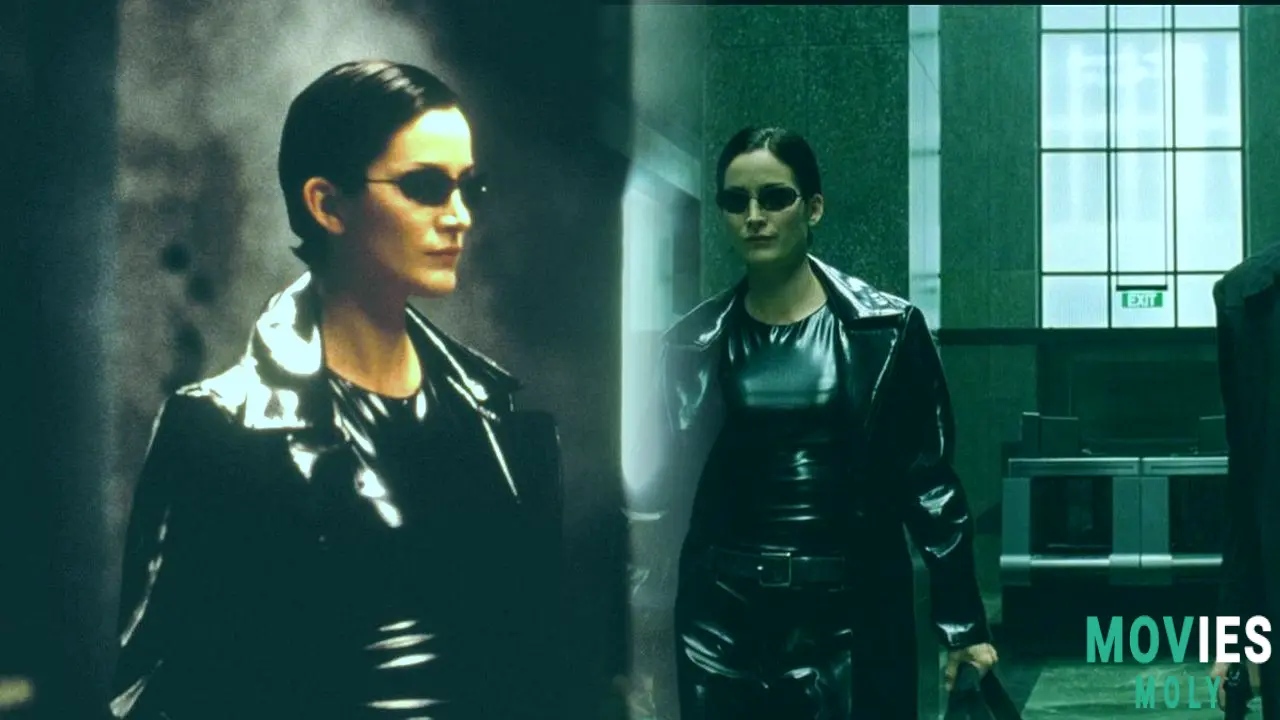A Delaware bankruptcy court just ruled against Warner Bros. Discovery, awarding crucial "derivative rights" for major franchises like The Matrix and Joker to Alcon Media Group, setting up an interesting, and possibly awkward, future for these beloved films.
TL;DR: The Latest Scoop on Your Favorite Film Franchises
- Alcon Media Group officially secured derivative rights to blockbusters like The Matrix, Joker, and Ocean's Eleven from bankrupt Village Roadshow.
- Warner Bros. Discovery lost the rights after a last-minute, higher bid was rejected by the court for being too late and strategically problematic.
- This ruling forces Warner Bros. and Alcon into co-financing partnerships for potential sequels and remakes, despite a history of legal disputes between them.
Imagine sitting down for a sequel to The Matrix or another mind-bending Joker film, only to realize the studio that brought you the originals isn't entirely in control of its future. Well, that's exactly the strange new reality unfolding in Hollywood as of this week.
The Backstory of a Big Breakup and a $125 Million DisputeThis whole saga kicked off with Village Roadshow, a longtime co-financier behind some of Warner Bros.' biggest hits, filing for bankruptcy earlier this year. Their financial troubles stemmed largely from a falling out with WBD, particularly over The Matrix Resurrections. Remember when that film hit HBO Max and theaters simultaneously in December 2021?
That move led to a major legal spat, with Warner Bros. ultimately winning a hefty $125 million arbitration award against Village Roadshow for unpaid co-financing. Village Roadshow pointed to the dissolution of this partnership as a key factor in their financial woes. Source: [The Hollywood Reporter, "Warner Bros. Forced Into Shotgun Wedding for ‘Matrix,’ ‘Practical Magic’ and ‘Ocean’s 11’ Sequels," November 5, 2025].
The High-Stakes Battle for Future Film Franchises

When Village Roadshow's assets went up for auction in May, Warner Bros. wasn't really after the whole film library, which brings in about $50 million annually. Their eyes were firmly on something called "derivative rights." These rights are essentially the golden ticket, giving the owner the power to greenlight and participate in sequels, remakes, and other new projects based on the original films.
For studios, holding these derivative rights is paramount. It ensures they maintain control over their most valuable intellectual property, allowing them to shape future cinematic universes and maximize revenue from established franchises without needing external approval.
Alcon Media Group Secures the Coveted Derivative Rights

In a nail-biting auction in Los Angeles, Warner Bros. went head-to-head with Alcon Media Group for these crucial rights. WBD set the initial price and pushed through ten bidding rounds, clearly demonstrating their keen interest in retaining control. However, Alcon kept raising the stakes, and eventually, WBD hit its internal spending limit.
Alcon emerged victorious, snagging the derivative rights for $18.5 million. This initial win was a significant moment, but the drama wasn't quite over. Source: [The Hollywood Reporter, "Warner Bros. Forced Into Shotgun Wedding for ‘Matrix,’ ‘Practical Magic’ and ‘Ocean’s 11’ Sequels," November 5, 2025].
The Judge's Scathing Verdict on Warner Bros.' Last-Minute Bid
Warner Bros. quickly had buyer's remorse, or perhaps, non-buyer's remorse, wanting to rectify their auction loss. Just before a scheduled hearing to finalize the sale, they dramatically upped their offer to $19.5 million. It was a move designed to outbid Alcon and reclaim control of their beloved franchises.
However, a Delaware bankruptcy court wasn't having it. U.S. Bankruptcy Judge Thomas Horan criticized WBD's last-minute tactic, stating it "appears engineered to run down the clock by effectively preventing a debtor from counteroffering or going back to its designated successful bidder." On Wednesday, November 5, 2025, the court officially awarded Alcon the derivative rights, shutting down WBD's eleventh-hour attempt. Source: [Bloomberg Law, "Warner Bros. Loses Bid to Acquire ‘Matrix’ Studio Assets," November 5, 2025].
"Alcon looks forward to working collaboratively with Warner Brothers, as we have for over a quarter century, to partner in the exploitation of the derivative rights to these many great films across multiple platforms."
— Andrew Kosove and Broderick Johnson, Co-CEOs of Alcon Media GroupWhat This Landmark Ruling Means for Your Favorite Franchises
So, which iconic films are now under this shared umbrella? We're talking big names that have shaped modern cinema:
- The Matrix trilogy
- Ocean's Eleven series
- Joker
- Wonka
- Mad Max: Fury Road
- Ready Player One
- Sherlock Holmes franchise
Alcon's existing library already includes acclaimed films like Blade Runner 2049, The Blind Side, and Christopher Nolan's Insomnia. This means any future sequels, prequels, or remakes for these Village Roadshow titles will require Alcon's blessing and collaboration. The first expected co-financing venture? A sequel for Practical Magic, tentatively titled Practical Magic 2.
A 'Shotgun Wedding' with a Tangled History of Legal Battles
The phrase "working collaboratively" from Alcon's statement sounds nice and diplomatic, but there's a fair bit of bad blood between these two companies. Alcon actually sued Warner Bros. just last year. The core of that dispute? A Tesla robotaxi event hosted on a WBD studio lot where Elon Musk showcased an AI-generated image resembling a scene from Alcon's Blade Runner 2049.
Alcon alleged WBD allowed Musk to misleadingly use this imagery, potentially creating confusion and infringing on their intellectual property. This history of legal skirmishes makes the now-forced collaboration on future projects a real Hollywood drama in itself, a "shotgun wedding" that could prove challenging to navigate.
Navigating Potential Hurdles and the Possibility of Further AppealsWhile Alcon is publicly expressing enthusiasm for partnership, WBD is reportedly "considering options on appeal." This means the saga might not be entirely over. If Warner Bros. decides to appeal the Delaware bankruptcy court's ruling, it could introduce further delays and complications into the development pipeline for these major franchises.
This situation highlights a significant limitation: legal battles, even seemingly settled ones, can continue to cast long shadows over creative production. It's a classic example of how financial and legal maneuvering directly impacts the creative pipelines of major studios, potentially slowing down or altering the trajectory of anticipated projects.
Real-World Scenario: How Collaboration Changes Creative DevelopmentImagine a scenario where a visionary screenwriter has a brilliant, groundbreaking pitch for a Joker sequel, something truly innovative and dark. Normally, they'd take that pitch straight to the Warner Bros. executives, who would then decide whether to greenlight it.
Now, with Alcon holding derivative rights, WBD would need to bring Alcon to the table from the very beginning of that process. This adds an entirely new layer of negotiation, requiring both studios to agree on creative direction, budget, and profit-sharing. This extra step, and the potential for differing visions or financial priorities, could mean that some projects take longer to get off the ground, or even shift significantly in direction to satisfy both parties. It introduces a new dynamic to an already complex and often sensitive creative process.
Practical Takeaways for Movie Fans and Industry Watchers
- Patience is Key: Don't expect immediate sequels or remakes for these key franchises, as WBD and Alcon navigate their new, complex co-financing relationship.
- New Creative Dynamics: Future projects tied to The Matrix, Joker, or Ocean's Eleven will involve discussions and approvals from two studios with a complicated, litigious past.
- IP is Gold: The court's decision underscores the immense and increasing value of "derivative rights" in a Hollywood landscape perpetually hungry for established intellectual property.
- Watch for Appeals: Keep an eye on WBD's next move; an appeal could mean further legal wrangling, adding more uncertainty before any new projects get concrete traction.
Sources:
- The Hollywood Reporter, "Warner Bros. Forced Into Shotgun Wedding for ‘Matrix,’ ‘Practical Magic’ and ‘Ocean’s 11’ Sequels," November 5, 2025.
- Deadline, "Alcon Media Group Wins Derivative Rights To Most Of Village Roadshow Library Titles," November 5, 2025.
- TheWrap, "Alcon Wins Derivative Rights to ‘Matrix,’ ‘Practical Magic’ and ‘Mad Max’ From Bankrupt Village Roadshow," November 5, 2025.
- Bloomberg Law, "Warner Bros. Loses Bid to Acquire ‘Matrix’ Studio Assets," November 5, 2025.






